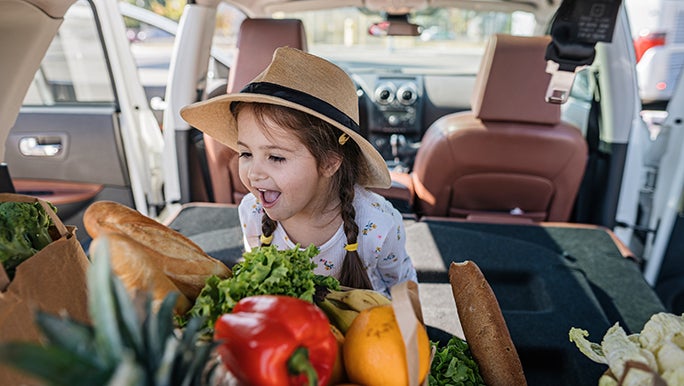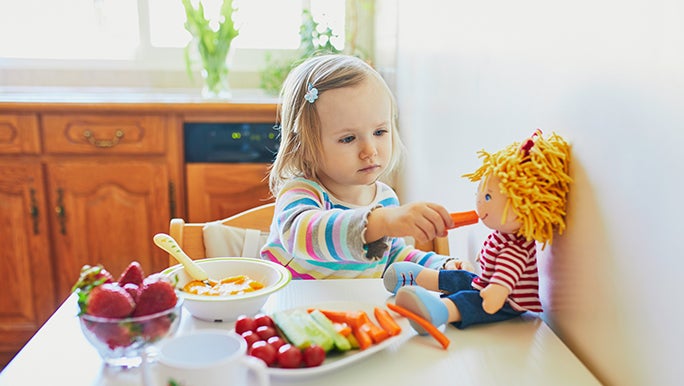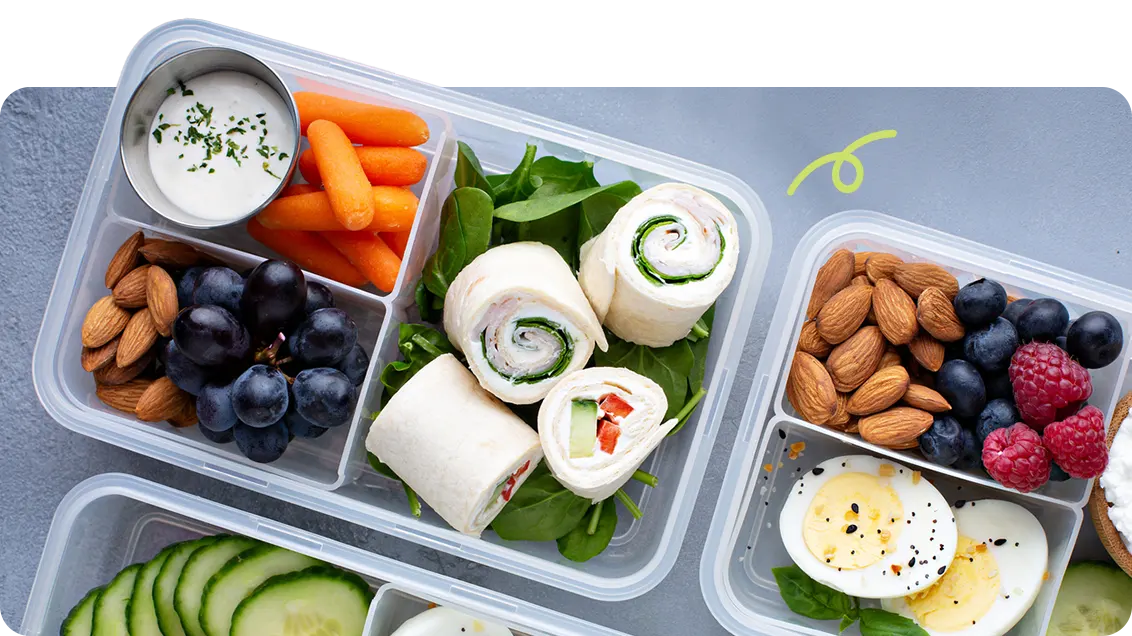How to get more veggies in your toddler’s diet

Hot chips are vegetables, right?
If you ask a toddler, they certainly are! In fact, if you asked a toddler to draw the food pyramid, it would probably exclusively contain the white food groups. That means pasta, bread, potatoes and rice, with perhaps the odd splash of colour from a strawberry or blueberry.
But as much as your toddler might be happy to just eat white foods, you know they need to get more veggies into their diet. Here are a few tips to help.
Getting vegetables into toddlers is a common concern
If your toddler will not eat vegetables, you’re not alone. According to the 2017-18 Australian Health Survey results, only 6% of Australian children ate the recommended serves of fruit and vegetables for their age group.
Some children flat out refuse to eat any vegetables. Others stick with one or two favourite veggies. And for some kids, vegetables they’ve been happily devouring at dinner time for weeks suddenly become public enemy number one.
Feeding fussy toddlers is no walk in the park!
The good news is that just because your toddler doesn’t eat vegetables today, it doesn’t mean they won’t eat vegetables when they are teenagers.
One study found that children’s like or dislike of vegetables is linked to their cognitive development as they age. That is to say, as a child learns more about health and has different experiences with vegetables, their likes and dislikes can change.
In other words: there is hope.

The Australian Dietary Guidelines state that toddlers (aged 1-2) need 2-3 serves of vegetables a day.
How many veggies should your toddler be eating, ideally?
It’s probably been drilled into you that we all need to eat five serves of vegetables a day. But while that’s roughly true for adults, the number for toddlers is lower (although we would never recommend them eating less veggies if they love them!)
The Australian Dietary Guidelines state that toddlers (aged 1-2) need 2-3 serves of vegetables a day. For 2-3 year-olds, the recommendation rises to 2.5 serves daily.
But exactly how big is ‘a serve’? The guidelines define a serve as:
- 0.5 cup of sweet corn, cooked green vegetables (eg. broccoli or spinach), orange vegetables (eg. carrots or pumpkin) or cooked dried or canned beans, peas or lentils (preferably with no added salt)
- 1 cup of green leafy or raw salad vegetables
- Half a medium potato or other starchy vegetable (eg. sweet potato, taro or cassava)
- 1 medium tomato
Breaking the serves down over the day can make them more tangible and achievable. It might only take a few ideas for healthy snacks or getting veggies into breakfasts for the kids to easily hit those guidelines or even exceed them!

Breaking the serves down over the day can make them more tangible and achievable.
Bona fide ‘mum hacks’ for increasing your toddler’s veggie intake
The question of how to introduce new foods to picky eaters is a big one.
Here are five ways to get more veggies in your toddler’s diet.
1. Cut the vegetables into fun shapes
Getting your toddler to eat a particular vegetable may come down to its shape. If carrot sticks don’t work, try using a star- or heart-shaped cutter to make different shapes. Have you seen those cute bento boxes on Pinterest? You’ll get loads of inspiration from there.
2. Get your toddler to help you cook dinner
One easy way to increase your toddler’s exposure to different vegetables is to get them to help you while you cook dinner. As you chop the veggies, give them pieces to hold. Talk to them about the superpowers of each vegetable.
Then, at dinner time, making a big deal about the fact that they helped to cook dinner might encourage them to eat it!
3. Add grated carrot or zucchini to pasta sauces
This is a way to sneak vegetables into your toddler’s food that can be a good interim measure while they’re still learning to love veggies. It also helps your toddler to avoid any textural issues that prevent them from enjoying those particular vegetables.
4. Make a smoothie
How do you feel about ‘Hulk juice’ for breakfast? A green smoothie packed with spinach and avocado or other greens is another great way to smuggle more veggies into your toddler’s day.
5. Role-model eating veggies
It’s amazing how much kids learn from watching us. If you always load your dinner plate with a good amount of veggies, it won’t go unnoticed. It might not get any more vegetables into your toddler’s belly today… but it will pay off in the long run.

The work you do now to get them eating more veggies will help them to develop a lifetime of healthy eating habits.
You’ve got this!
One thing for certain is that your toddler is lucky to have you on their side. The work you do now to get them eating more veggies will help them to develop a lifetime of healthy eating habits.

Pack a lunch that packs a healthy punch
Ways to eat healthy lunchbox program
Need inspiration and ideas for the big kids? Sign up now to receive our healthy lunchbox resources and recipes to set you up for stress-free lunchboxes.
*Terms and conditions
See Ways to well programs - Terms and Conditions
Related:
- How to change your relationship with food (and stop eating junk food)
- How to get your kids to exercise
Reviewed by the healthylife Advisory Board August 2021.